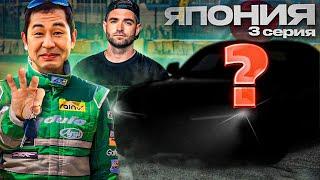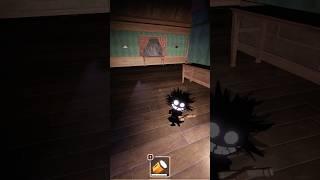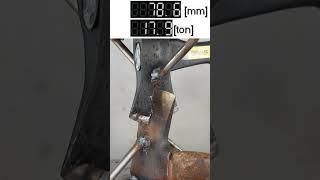
IS FULL FRAME BETTER THAN CROP SENSOR? The truth revealed...
Комментарии:

Thank you for these well-appointed videos. :)
Ответить
Sigh. Crop does not „increase your focal length“ (which is a physical feature of your lens / camera system). It is sad that this wrong analogy is perpetuated on and on. It is just a narrower viewing angle, that gives the visual pseudo-impression like it would. If you crop your full frame picture in post to the same size (viewing angle) as an APSC Sensor would provide, you would get the same „magnification“. That is why it is called crop, and not tele-factor or something like that. You just get „less picture“ with an APSC Sensor at the same focal length, than with a full frame sensor. There is your „crop-tele magic“, if you really want „Photography Explained“ (correctly).
Ответить
Rubbish. You are misinforming the viewers.
The word "crop" means it a crop of the full sensor.
Give everything the same. The crop sensor out put is the SAME IMAGE as full size camera, but the picture is cropped. There are NO advantages (given the speed on the camera and lens being the same).
The differences are in the cost.
APSC: are cheaper to make, lens are easier to make with less material and cost.
Sensor is 50% smaller so the processing can be used for auto focus and other functions or use older processors.
The opposite argument also apply to full sensor camera being better in low light.
Explanation: If the camera/tripod is on a set position, the subject has not moved, the light has not change, lens are the same (FF lens) so image will be the same will be the same. That means FF does NOT get 50% buff on the subject either. FF will just contain extra details between the FF and the crop area. Histogram and exposure may indicate more light, but that has nothing to do with the crop picture comparison. as the picture will be the same.
Summary: CROP sensor is approximately 50% of the full frame. That's ALL, there are no magic on the focal length or light difference when you compare the same picture (100% zoom and crop the subject to be the same size).

One should ask: Better for what? If you need a llarger depth of field for product or macro shots, a smaller sensor might be better. If you want to shoot landscapes under difficult light conditions, a full frame sensor will be better.
Ответить
"It's not the camera that makes the photographer, it's the photographer that makes the image."
This is so true. I have been able to capture absolutely beautiful images with these two APS-C cameras - Fujifilm X-H2 and Fujifilm X-T5 (same 40MP sensor, same processor).
Due to back injuries from my time in the military (which left me disabled - cane use) I have to carefully weigh any camera or lens purchase.
Thinking about getting a Micro 4/3 OM-1 Mark II for longer reach because of the 2.0x crop factor. Sometimes that makes a huge difference in many photos I've found. I will always keep my Fujifilm setup because I love the ability to be able to use different Fujifilm film simulations or third-party film simulation recipes.
One thing you didn't mention is IBIS (In Body Image Stabilization). IBIS is generally much better on a crop sensor camera. e.g On the new OM-1 Mark II camera the IBIS is fantastic. Same on my Fujifilm X-H2.
Excellent video! :)

Smartphones have crop sensor too
Ответить
bought an s5ii as my first ever camera, i am video first and photo second but i am astonished at how great the photos are and find myself taking more photos then video.
Ответить
Umm lies again. Crop factor is not "feature" but a failure and a lie. Should not be for the love of all holy listed as a feature, its like calling a "feature" that some specific asian ladies have more than advertised in pants regions.
Its lens manufacturer lying to consumers.
While it is understandable to sell full frame 50mm lens that works on full frame correctly but then gets 1,4 crop factor so 70mm on APSC, nearly 90% of all available lenses are crop sensor only. They are advertised as "50mm* (on full frame)" and yet do not work at all on full frame, produce giant black circle around the photo edges. They literally FALSLY claim 50mm field of view on full frame while producing black arseole and again getting crop factor on APSC. They dont even have the audacity to state actual field of view on the box.
Fun fact: Fujifilm lenses are the only ones with correct field of view. When you buy 50mm lens for your Fujifilm camera it is 50mm and not some "full frame equivalent that isn't equivalent because it doesnt work" BS.
Bs again. Full frame does not make camera "heavier" and "bulkier". There are quite a lot of rather small full frame cameras especially from sony, there are even medium format cameras that are just as small. It was just common-ish that expensive full frame sensor was build in to all-expense-paid fully-featured 'professional' camera bodies. Manufacturer does not want to sell 10 grand more expensive hatchback with V12 engine, they want to sell you 200grand sports car with 30grand premium on the engine. Simple as that

Hi, in your opinion, what's the best for making STOP MOTION in studio ? full frame or crop sensor ? thanks
Ответить
Superb analysis dear
Ответить
The sweet spot of price, weight and size, the advantages of dof for landscape and macro let choose me undoubtly APS-c. The advantages of fullframe are for me theoretically in most cases. And new editing software makes the difference yet smaller. The few cases in which fullframe would be really a clear better choice for me could not justified by the fact that I have to carry a lot more weight and have to spend a lot more money. That does not make sense to me. For a portrait photographer or professional this might be another choice, but many professionals are working with APS-c, too.
Ответить
light is light, an f1.2 on a crop sensor is grabbing the same light as f1.2 on full frame (photons are extremely small after all) So, understand that cheap lenses make photography no fun at all. If you cant stretch you budget for the best lenses, then stick with your phone.
Ответить
You didn't mention sharpness. There are a lot of people who use full-frame lenses on crop sensor camera's. With that combination, you loose sharpness, because a crop-sensor don't utilise the whole area of the front element of the lens, but only the centre part. That would almost be the same as using a telecoverter on a full-frame camera with a full-frame lens.
Ответить
Yes, it does depend. But mirrorless has just put the cat amongst the pigeons and blurred the traditional price differences.
I had a Canon 600D with Tamron 18-270. 2012. Loved it. Went around the world with it. Very happy.
Switched to Canon RP with RF24-240. Have not lost a thing and gained a lot.
1. A crop from this is better than the full reach of the old!
2. Improved IQ. Much better low light, etc.
3. Weighs far less and is smaller. Snoot bag with waist belt makes it an easy carry.
4. Price? Highly competitive. Got a discounted kit for $AUD2700 with $300 of gift cards included! Try buying APS-C mirror & zoom lens for that!
5. A mirrorless APS-C isn't that much cheaper than FF. There are plenty of APS-C mirrorless bodies dearer than basic FF.
It's the mirrorless format with lens corrections in the body of the camera (for jpegs only) which made all this possible.
I've since added an R50 and RF100-400. Again waited for discounts. This is my occasional longer reach go to. Adding a body skin to make it easier to grip.
Oh, the beauty of these two is:
1. Lenses are FF and fit both bodies.
2. Same battery. One spare. Switched to ONE 2 x batt USB charger. Less space, less weight and usb is easy to find these days.
3. I've covered both options for about the same as mirrored APS-C!
Flash? Built in ones are handy, especially for daylight fill-in. Of couse not very strong. Begrudged paying for a Speedlight. But its great - no regrets now.

I'm a hobbyist photographer and I had an old DSLR crop sensor Canon. I noticed this year that I'm slowing down because it was old, and I looked at my different options. I eventually decided to buy the Canon r100 and to stay with a crop sensor instead of going full frame. The r100 is so small that I can travel with it effortlessly. Someday I will get a full frame camera just for the experience but I haven't really run into any disqualifying problems with crop sensors. (I'm also really amazed at the ISO range of the r100, considering I spent $237 on it.)
Potentially, I might just jump from a crop sensor to medium format at some point.

My D5100 16mp sensor gives about the same picture as a 33mp D810, when both need to be cropped for distant subjects like birds, but on a 150-600mm lens when taking aviation pics, the wide end is more useful on a full frame camera.
So it depends on your lens, distance to subject/size and sensor pixel density, which is better.

Check, understood
Ответить
I went through this whole investigation years ago and I believe my assessment still stands. Crop sensor cameras are basically as good at everything except portrait photography and its not necessarily the fault of the sensor but the availability of lenses that can get full frame results. There are some lenses for crop sensors that get very close to full frame results but due to the engineering challenges required due to less light capture on a crop sensor and more glass needed they are very expensive and so you might as well have just bought a full frame. I think they have an edge in astrophotography also.
Ответить
for bokeh on aps-c camera we can use ttartisan 35 mm f/0.95 to get around 50 mm f.l. and f/1.6~
Ответить
I still prefer full frame.
Ответить
Glad I came across yourself, new subscriber 🥳 so ever since I lost my old Pentax 35mm film camera in a divorce I’ve been using many lations of Smart phones ( iPhone ) yes most of time in Auto. The most important part is the sensor sizes are way smaller than even micro 4/3 or 1 inch sensors but still manage though clever technology to capture some nice images, APC crop sensor is huge compared to my smart phones sensor lol as as you pointed out I should hopefully be blown away with the better image quality when cropping in for example as my phone gets very noisy. Even the Panasonic 4/3 Om-1 and mark two looks fantastic. Yes I’ve been watching lots and lots of camera reviews to decide on what to buy and price is importance so crop sensors looking like the best deal for one’s pocket, Very much enjoyed your video and look forward to watching many more 🥳🥳🥳
Ответить
And yet you fell into the trap of saying "upgrade to full frame" when in reality it's just another tool that provides some benefits while losing others 😉...then again, camera manufacturers want you to believe it's an upgrade.
Ответить
The only way I can tell is when I pixel peep
You can see the cleaner background with full frame.
But without pixel peeping I can't see a difference. Much like when I went from a 1080p TV to a 4k. Although I do sit quite far from my screen.
Maybe it's apparent to the person doing the pp but to me it's really hard to see a difference if I view the photo at its intended size.

❤❤❤❤❤
Ответить
To me this is clearly case dependent evaluation. I've been using APS-C many long years. Then I did switch to FF because of better IQ and "proper" FL of lenses. Later I did add the medium format (Fuji GFX).
Choosing the camera today I would opt for APS-C if I needed long reach for most of my shots. FF for general use and MF for the ultimate IQ.

Why buy a MFT or an APC today, when you can get an Iphone 15 or 16 Pro...
Really Small Size, always in your pocket, and image quality barrely equal.

I have 4 APSC DSLR cameras if I want full frame camera I use my Pentax Spotamatic SP2 film camera I paid little money for it may be old but is a lot cheaper than a new full frame camera
Ответить
Both have their advantages.
Full frame allows more light
Lower megapixels allows more light.
Full allows wider shots.
Crop can allow better zoom

full frame sensor is just based on the size of films. it is never a sensor size standard. it is slightly better in low light and dynamic range but not that much. I have been photographing since I was 8 (that was in 1988). I have had countless of cameras and you know what? technology have come along way that the difference between the 2 is negligible. Ever wonder why fujifilm skipped the full frame format and went directly from APSC to medium format/large format? I have a fuji xt5 and a sony A7IV but i always use my fuji most of the time.
Ответить
Next blabla video no one needs... 😝
Ответить
So lenses give same dof but aperture smaller in crop. 28mm on d3500 not f2.8 anymore...
Ответить
Nikon d700 winner!
Ответить
Hi can You tell us what your is model of backpack You use? Looks very nice and slim?
Ответить
I started out with the Canon 500D (Rebel) with a 1.6 x crop in 2008. I quickly got fed up with it, mainly because of the poor image quality above iso 800. Switched to the 5D and 1D series and never went back to crop. The 1D was 1.3x crop which was something inbetween. Now I have an R6 and it's iso performance is amazing.
Ответить
Calling any sensor cropped shows your ignorance and history of early Nikon and Cannon digital cameras.
Ответить
I disagree that a crop sensor lens has a longer reach and is therefore better than full frame. if look at the diagram shown the centre of the full frame image is the same size of the crop centre image and so a crop from a full frame image to apsc gives you the same reach. Having said that I use a Fuji system which is excellent for my needs and wouldn't want the cost and weight of a full frame camera
Ответить
Olympus OM1 and Fuji X100VI are evil laughing rightnow. People that cant even get the besy out of a cellphone straight up disregard how good modern camera sensors are, especially the modern ones.
Ответить
Many PRO shooters use M43 here in Africa. The special abilities of the Oly OM-1 II and the 20-100 and 150-400 PRO lenses are legendary, and that 400 becomes 1000mm equivalent optically, even 2000mm digitally (really lossless) and it makes a huge difference shooting wildlife. Lion don't brush; give them a wide berth.
Ответить
I switched from Nikon Z to fujifilm because the small camera and lenses and the quality of photos. Nowadays both are great.
Fujifilm is very professional for portraits and wedding is my experience
I use also a Leica Q2 and sometimes I don't see the difference between quality

Finally, someone with expertise making a common sense comparison that an amateur like me can understand and use in a real world situation. Thank you.
Ответить
Forgot two large points. Full frame are usually more ergonomic, and full frame cameras typically have better autofocusing, and other features rhan their aps-c counterparts. It why I went to full frame, no aps-c could match the full frames' autofocus, fps, and even video modes.
Ответить
If you need to fix something, can you just use one size screwdriver? Different CMOS are really just different size tools. I use NIKON Z and M4/3 at the same time, and take them out on different occasions. In general, it is more advantageous to use a larger CMOS camera, just like the Hasselblad has better image quality than the FF, but when I am traveling and hiking, it has become a question of whether to take it or not.
Ответить
Some of the best photographs I have made, even deep astro shots have been APS-C.
Ответить
I use the pro series M4/3, but many years ago I finally understood one fundamental thing. 90% of the best photographs don't depend on HW at all, but on good composition, capturing the right moment and also luck. I've seen a lot of great photos taken with second hand digital cameras with resolutions as low as 5Mpix. Since then I don't deal with changing equipment, but I'm learning to take great photos. Even with a mobile phone...
Ответить
Great advice thank you 🐶
Ответить
It's interesting that no one referred to 35mm as 'full frame' in the days of film cameras, when every camera club had at least one bore who looked down on everyone else because he he a Hasselblad or a Mamiya medium format camera, and everyone knows real photographers shot roll film and 35mm was for snaps and amateurs.
35mm became the standard for film photography not because it was some platonic ideal size, but because it allowed for reasonably convenient and portable movie cameras, which in turn meant that 35mm film was produced in vast lengths that could be conveniently packaged in lightproof cannisters for easy loading into stills cameras, which led to the development of the SLR as the ultimate convenient, portable interchangeable-lens camera by the late 80s (just before motor drives, vertical battery grips, and auto focus turned the likes of Canon's EOS series into monsters that challenged 5x4" plate cameras for bulk).
These days, 'Full frame' is a marketing phrase: if 35mm is full frame, what does that make medium format, which is even fuller? There are trade-offs: smaller sensors mean smaller lenses for the equivalent field of view and light transmission, while larger sensors make it easier to achieve a shallow depth of field, should you want to do so. Larger sensors also have better high ISO performance, but that's only really relevant at about ISO 12800 (note to the young: in the days of film cameras, ISO 800 was considered pretty fast, and ISO 1200 was specialist fast film and you accepted the visible grain as an artist choice or compromise). Frankly, anyone getting into digital photography as a beginner now who allows themselves to be sold a 35mm sensor camera is either being oversold or wants a status symbol. Get a crop sensor camera (perhaps second hand), find out how and what you like to shoot, and only upgrade to a larger sensor if you really need it because your old gear is limiting in some way. Generally, if you have a half-decent camera (and pretty much all crop sensor cameras that have sold in decent numbers over the last 10-15 years are decent cameras), probably the best way to get better photos with £2500 is to do a course or go somewhere new and inspiring, rather than buying a new and expensive camera and starting again with a new instruction manual. Unless you really need low light performance, you'll probably appreciate smaller gear more than the ability to push up to ISO 25600. That and greater shallow depth of field are limits of smaller sensors dictated by physics, though in fact if you can't achieve pleasing bokeh with even a m43 camera and a F1.7 lens, you probably aren't going to get your money's worth out of a Sony a7 either.

Very useful video. Thank you 🙏🏻
Ответить
R7 crop sensor £1500, R8 full frame £1000. Also crop isn't a good idea for travel unless you have an extra wide lens and landscapes could be a problem
Ответить

























